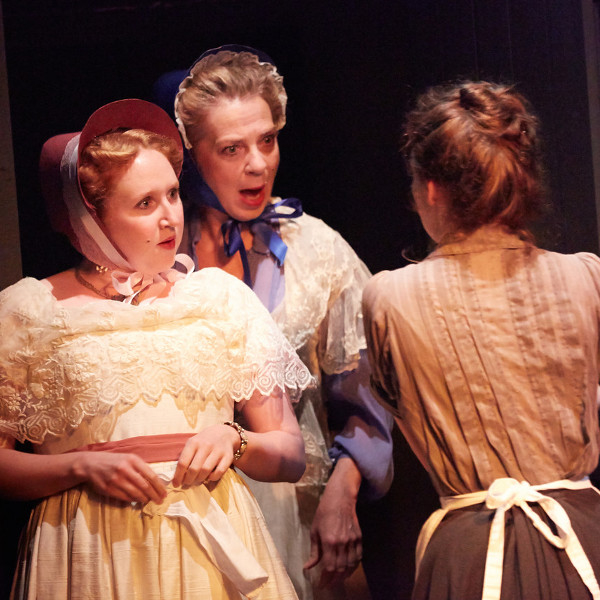The Widowing of Mrs Holroyd (Orange Tree Theatre)
Paul Miller’s inaugural production as artistic director at the Orange Tree is a success

© Mark Douet
Paul Miller‘s ascension to the directorship of the Orange Tree brings with it a number of superficial changes (the seats are now numbered, the regular start time has been sensibly shifted back to 7.30) but fans will be pleased that, at least on the evidence of this opening production, nothing has changed in its artistic approach.
As ever, the Orange Tree reminds me of the classroom of a mildly eccentric English teacher, whose infectious enthusiasm for the writing they love pulls you into their dream, out of the surrounding world and past most of your misgivings.
The Widowing of Mrs Holroyd was the only one of Lawrence’s plays performed during his lifetime, and even then only for a brief run, shortly before his death, that he never saw staged. His plays, considered too raw for contemporary audiences, caught the imagination of the 1960s kitchen sink writers, many of whom already cited his novels as inspiration.
Lawrence’s work though isn’t as neatly didactic as this might suggest, beyond the intimate setting of the main room of a terraced home in a small colliery town (beautifully staged here, with careful naturalistic lighting) it’s also concerned with his own esoteric metaphysics. As a consequence, following the interval, the play swerves away in tone and action from what you might anticipate. And though the title, the setting and the mention of a love triangle are all you need to guess the play’s plot – the strange denouement is at least as gripping as any plot twist.
This unusual vision is kept grounded by Miller’s assured direction and a strong cast. Ellie Piercy gives a taut central performance as a woman trapped by her circumstances, well supported by Gyuri Sarossy and Jordan Mifsud as respectively her drunken husband and young suitor. There are also a pair of powerful cameos by Heather Johnson (as a brash drunken widow) and Polly Hemmingway as Mrs Holyroyd’s mother-in-law (whose immediate stoicism is wonderfully observed). Yet even with the all acting talent present I’m not sure every line lands: Lawrence’s dialogue, with it changes of pace and mood isn’t always easy to follow.
Instead it’s in individual moments, often unspoken, that Lawrence’s world comes alive here: the silhouette of a heavily drunken man swaying in a doorway, the same man (now present) struggling to remove his shoes as his wife looks on disgustedly, a woman washing a man’s limp and dusty arm, are just some lucid moments that seem to have an almost archetypal resonance.
This is what immersive small theatres should do, and where the Orange Tree continues to be some way ahead of most its rival. It’s good to know that beyond a fresh lick of paint, nothing’s really changed.














